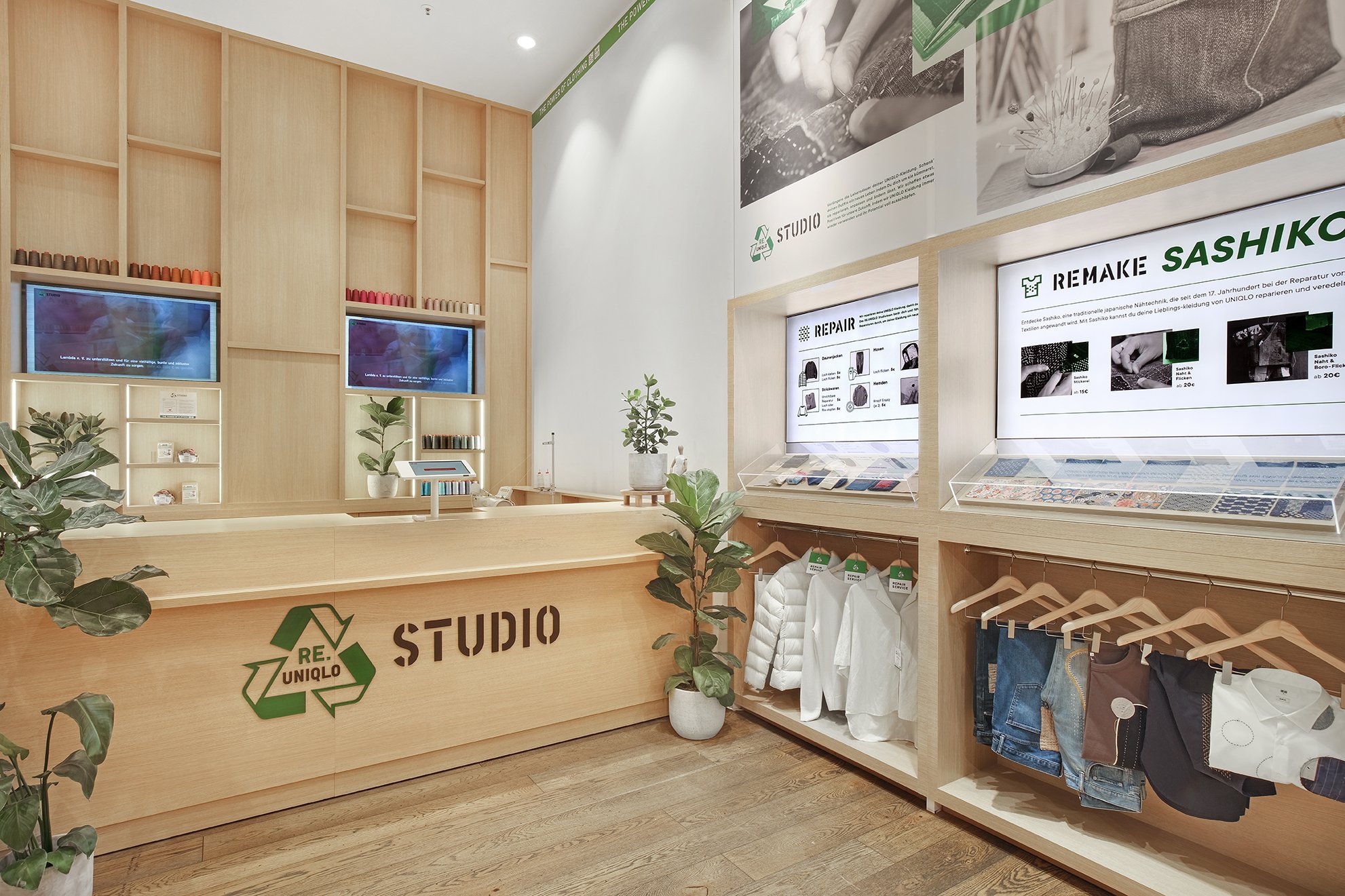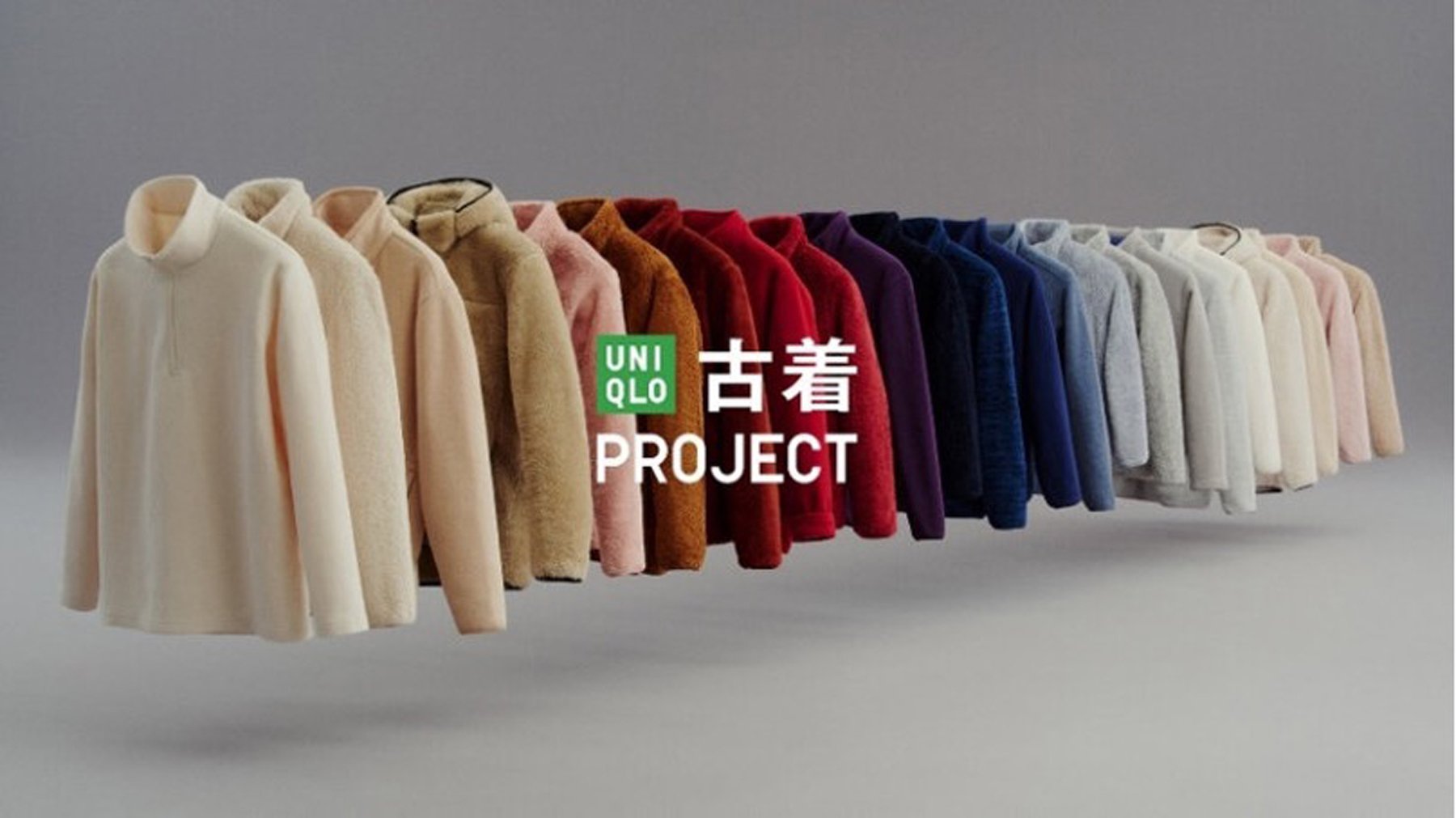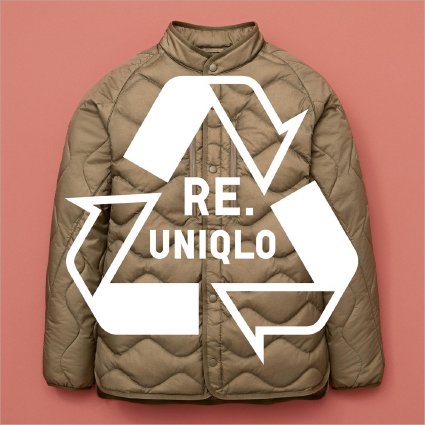Last Updated: 2026.01.30
to Japanese page
At Fast Retailing, we believe we have an important responsibility not only to produce and sell clothes that our customers can wear for a long time, but also to promote initiatives that extend the use of those clothes and maximize the value without discarding them. To contribute to a more circular society, we are advancing our 'RE.UNIQLO' initiative.
Initiative to make clothes last longer - Release of video showing how to take care of clothes
Our basic premise is that good clothes should last as long as possible for customers who purchase them. UNIQLO offers a variety of clothing care videos, such as "How to wash knitwear" and "How to care for wool coat" to help customers wear their clothes longer.
Related Links
Reduce - Initiative to reduce clothing waste as much as possible - Repair, Remake, Upcycle
 RE.UNIQLO STUDIO
RE.UNIQLO STUDIO
-
Since 2022, UNIQLO has been expanding its RE.UNIQLO STUDIO initiative in stores across Japan and overseas, offering repair and remake services that support customers in extending the life of their clothes. In select countries and regions, we also offer upcycled items for sale. This initiative was first launched through a workshop held at UNIQLO Tauentzien Global Flagship Store in Germany, in collaboration with the German NGO Berliner Stadtmission. As of the end of October 2025, RE.UNIQLO STUDIO has expanded, and now available in 67 stores across 23 countries and regions. Repair services available include button replacements, seam repairs, hole repairs, and zipper replacements, while remake services include customization options such as embroidery and 'sashiko' stitching.
-

The RE.UNIQLO STUDIO in the UNIQLO Tauentzien Global Flagship Store in Germany
Related Links
Reuse - Reusing clothes initiative - Donation activities and used clothes sales
Since 2006, Fast Retailing has been collecting and reusing clothing no longer needed by customers at its stores around the world. With the cooperation of our customers, we collected approximately 9.5 million items* in the fiscal year ending August 2025.
 Clothing Donation
Clothing Donation
For clothes that can still be worn, we are contributing to a circular economy by donating to people in need or redistributing them as pre-owned clothes. Through partnership with United Nations High Commissioner for Refugee (UNHCR), our brand, UNIQLO, GU, Theory, PLST, Comptoir des Cotonniers, and Princesse Tam.Tam, donate the clothes to refugees and internally displaced people around the world, supporting livelihood of women and youth in becoming self-reliant, and providing clothes in times of emergency or disaster. In the fiscal year ending August 2025, we responded to requests for donations of approximately 4.74 million items (clothes collected from customers only). The total number of items donated since the start of the program has reached approximately 63.71 million (from 2006 to the end of August 2025).
 Pre-owned Clothing sales
Pre-owned Clothing sales
In October 2023, we launched the UNIQLO Pre-owned Clothes Project. In the fiscal year ending August 2025, we conducted a trial sale of pre-owned clothes at three UNIQLO stores in Japan: UNIQLO Setagaya Chitosedai(Tokyo), UNIQLO Maebashi Minami Inter(Gunma), and UNIQLO Tenjin(Fukuoka). We will continue to analyze feedback and insights we receive from customers through these sales and continue to sell pre-owned clothes on a trial basis. For the latest list of stores offering this service, please refer to the related links here.

*The amount collected is estimated at 300 grams/item. Donations are sorted into 18 categories according to need, and the average number of items in each category is set, then compressed and packed (packed in bales) and donated by the bale. The amount donated is calculated based on the average number of bales per category, consequently the calculation method differs between the amount collected and the amount donated.
Related Links
 Clothing Donations
Clothing Donations GU recycling activities (Japanese Only)
GU recycling activities (Japanese Only)  Theory : Closet for Needs Program (Japanese Only)
Theory : Closet for Needs Program (Japanese Only) UNIQLO PRE-OWNED CLOTHES PROJECT(Japanese Only)
UNIQLO PRE-OWNED CLOTHES PROJECT(Japanese Only)
Recycle - Initiatives to recycle clothes
We are promoting initiatives to recycle collected clothes into new clothes and deliver them to customers again. For example UNIQLO extracts down and feathers from collected down jackets and uses them as raw materials for new down jackets. For the 2025 product lineup, we used recycled down in several hybrid down jackets and coats available in Europe.
In addition, for the official wear provided to the Swedish national team for the international sports event held in France in the summer of 2024, UNIQLO used a molecular recycling method for some collection items (materials with a high polyester content) collected from stores. This is the first time UNIQLO has recycled clothing donated by customers into fabrics used for brand new items.
And GU also separates polyester materials when it collects products and recycles them into materials for new products.

Materials that cannot be recycled into clothing are repurposed into materials such as sound proofing for automobiles or industriual-use supplies*1. Collected items that are difficult to reuse for these materials, are processed into solid fuel (RPF*2), and used for used for industrial process*3.
*1 Industrial cleaning cloth used for machine maintenance and oil removal
*2 Refuse Paper and Plastic Fuel
*3 The recovered heat energy will be utilized to power generation and steam production